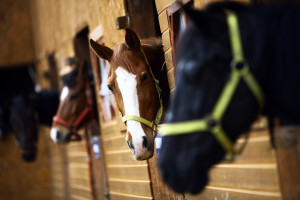There are two types of warranties to be aware of during an equine purchase and sale agreement: express and implied. Express warranties are detailed by the parties in the agreement while implied warranties are implied under law or by reason of a statute. Horses are considered “goods” in most states under the Uniform Commercial Code (UCC).
This type of warranty covers facts about the horse included in a sales contract and includes things such as the horse’s title, its lineage, its show or jumping history, and its health. A buyer will want as many express warranties as is allowed when buying a horse because the warranties will protect the buyer from anything unexpected later on – unless the seller has made the warranty knowing the true facts differ (fraud) or if the seller made the warranty without any facts to base it on (negligent misrepresentation).
Implied Warranties
These warranties that apply to an equine sale are warranties of “fitness for an intended use” as well as “merchantability.” Implied warranties also arise under the UCC and apply to the equine sale unless waived by the contract. Language that affects a waiver of implied warranties may include a version of the phrase: “any implied warranty of fitness for an intended use or merchantability is hereby waived and the horse is sold as is with all faults.” An implied warranty of fitness for intended use means that if the horse is sold as a hunter/jumper, it can be used as such. The warranties of merchantability means that the horse can be sold in commerce as meets the customary requirements of like horses sold in the equine trade or breed.
Sample Warranty Language for Use in an Equine Sale Contract
The horse is sold with the express warranty as to breed and title. The horse is also sold with the implied warranties of fitness for intended use and for merchantability. (This warranty language can be expanded upon based upon the particulars of the sale.)
A seller should seek to limit express warranties and to exclude any implied warranties especially if selling the horse as is. Learn more by contacting Catanese & Wells, a California equine lawyer at 818-707-0407.

